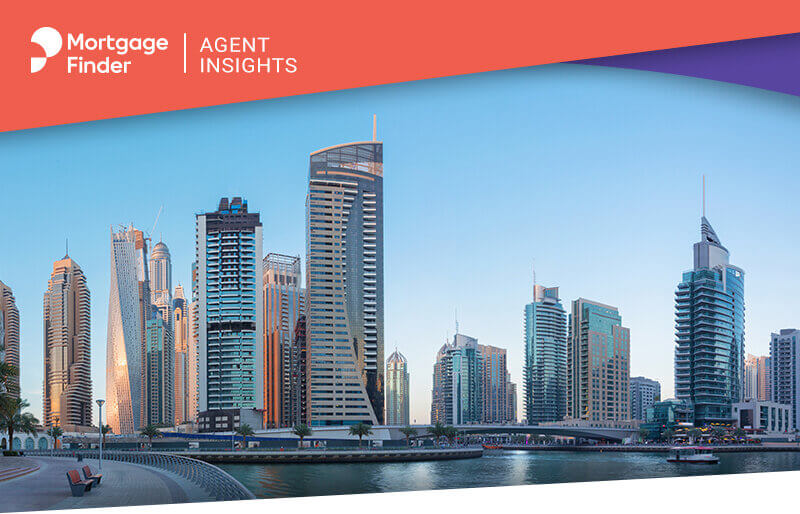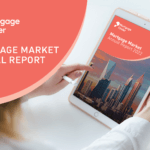The Dubai property market holds a lot of potential for both experienced and first-time investors. Richard Waind, Group Managing Director at Betterhomes, takes a look at how Dubai compares to other major international cities from the perspective of an investor.

First-time investors – the lure of Dubai for people new to property investment
With property prices in Dubai at a four-year low, we are seeing an increase in what I like to think of as ‘first-time investors’ coming to Dubai, as well as the return of more experienced investors. The concept of first-time buyers is nothing new, but now we’re seeing more people, especially current residents, willing to dip their toes into this market as investors and landlords. Attracted by today’s low prices and strong yields, the current market cycle in Dubai is a real opportunity. We have seen particularly strong interest for first-time investors in the traditionally popular neighbourhoods of Dubai Marina and Downtown, with investors favouring studios and one beds below the one million dirhams mark.
For people who have never really considered property investment before, Dubai operates as something of a showcase, with its impressive rental yields and at today’s prices, great potential for long-term capital growth.
Building today for the population of tomorrow
One of the exciting things about a vibrant, growing city like Dubai is watching it expand – and understandably, people want to be a part of that. At the moment, there is plenty of development and plenty of property available for the current population. This has created an oversupply of property which is keeping prices down for those looking to buy, however, it is fair to say that most in the industry would agree that this will not last forever.
Capital growth is a huge consideration for investors. Of course, rental yields in the short term are what pay the mortgage and make the whole thing possible, but the rise in the value of your property is what really makes investment in this area such a viable plan.
Buy something today for under one million dirhams in a popular area like Dubai Marina, and you could enjoy fantastic market growth, potentially up to 50%, over the next decade or so – that sort of increase in value is not unrealistic taking into consideration today’s values and the population growth anticipated in Dubai. Currently the city’s population is approximately 3.1 million, but projections put the total to five million residents by 2030. I suspect at current rates of growth, and with a potential post Expo 2020 population uplift, today’s investors will not have to wait too long to see the supply and demand dynamic shift and prices start moving upwards.
The strong rental market
In the past few years we have seen both rent and sales prices fall, however rents have not fallen as fast or dramatically. With the large and consistent expat population in Dubai the rental market continues to remain strong.
Rental yield is a representation of your annual rental income vs. the price you paid for your property. If you have a property which you paid 320,000 AED for, and it brings in 30,000 AED in rent each year, that’s a gross rental yield of almost 10%. This is a fantastic return for landlords, and these are the figures we are seeing in some of Dubai’s more affordable communities.
A rental yield of 10% is incredible internationally; compare it with a mature market, such as the UK, where you would be happy with 3% to 4%. In London, where property prices compete with the rental market at far stronger rates, a rental yield of 1% is not unexpected. Just in terms of rental yield alone, an investment in Dubai can be ten times as attractive as a purchase in London.
Of course, 10% is a peak example that’s seen in some of the more affordable areas, such as Discovery Gardens, but strong rental yields of 6% to 8% can be found across the city.
Combining rental yield with capital growth – the full investment opportunity
Maximising your investment is a little more of a balancing act – where the rental yields are high, the market value of your property may not rise as much as other areas where the percentage yield is not as attractive, but the capital growth is much stronger.
Looking at the two return on investment aspects together is what makes Dubai such an opportunity. The short-term rental return can help cover the costs of the investment and provide a level of profit that can either be used as income or ploughed back into the property, and the anticipated future property value increase gives a pay-out when time comes to sell or otherwise release the equity.
It does take a brave investor to look at the population growth and make a decision based on projections and speculation – no matter how experienced the speculator – but it’s the brave investors of today that stand to make the most in the long run.
The sub-million investment opportunities or the highest rental yields
A million dirhams is a real opportunity level for the confident investor today. Market prices in areas such as Dubai Marina and Jumeirah Lakes Towers mean you can purchase decent investment properties for less than one million dirhams and expect some excellent capital returns by 2030 – not to mention decent current rental yields.
Areas like Discovery Gardens or International City, for example, are able to provide you with higher rental yields for less initial investment.
Tax free property investment
Famously, the lack of tax is the other draw to property investment in the UAE and really begs the question ‘why invest elsewhere?’
There’s no income tax on the rental profits, and no capital gains tax when you sell. It’s a huge gain when compared to Britain, where recent taxation changes are taking ever greater bites out of any profits made from property investments.
An international investment for confident investors – whether first-time or old hands
Through these three factors: strong capital growth, high rental yields and zero tax, it is no wonder than property investment in Dubai is some of the very best the world has to offer.
By Richard Waind, Group Managing Director at Betterhomes








